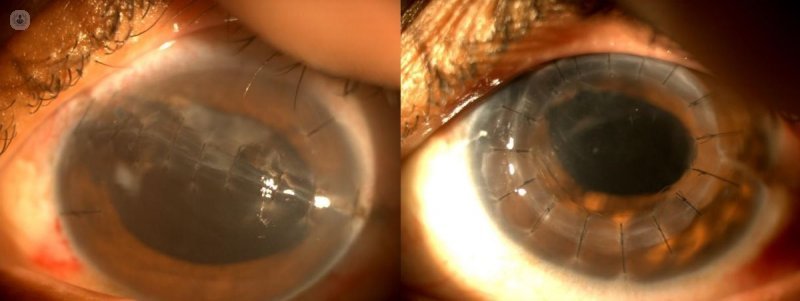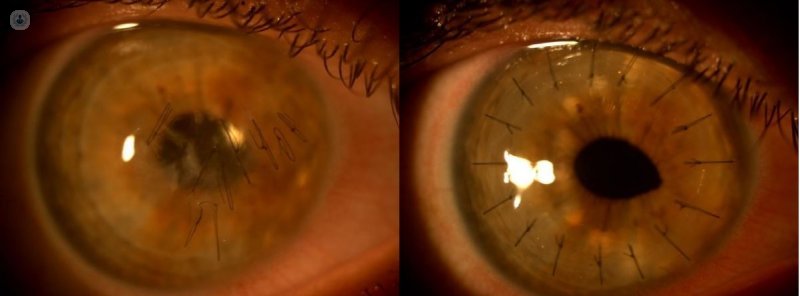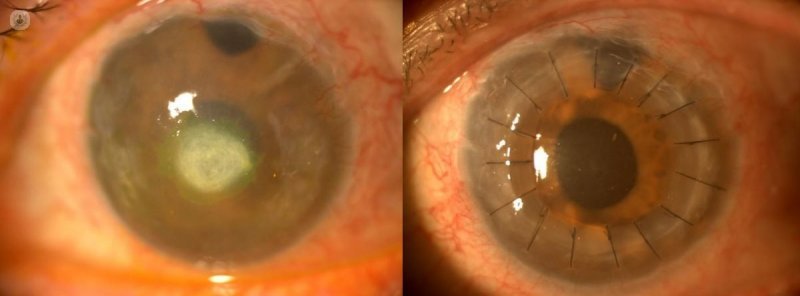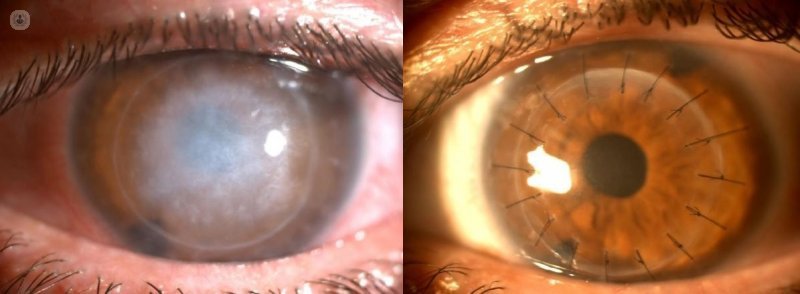Corneal transplantation, when to proceed
Written by:Corneal transplantation is to replace all or some of the layers of the cornea. These tissues are obtained from a donor. It is convenient to conduct this type of transplant when the eye does not present any signs of inflammation or infection.

There are two types of corneal transplant: piercing, when the entire thickness of the cornea is replaced; and lamellar when only some of the layers replaced.
As experts say in ophthalmology , corneal transplant should be performed in cases where pathology promises the transparency of the cornea, physical integrity or to resolve major uncontrolled infections with medical treatment.
Corneal transplant risks
The main risks a corneal transplant are:
- Massive bleeding during surgery choroidal. If it occurs is devastating to vision, although very rare.
- Postoperative infection. It is also very rare and its prognosis is more positive than in the case of bleeding.
- Graft rejection. It can occur over the years, so it is highly recommended that regular eye examinations. This rejection is much less common in the corneal transplant in other types of transplants.






